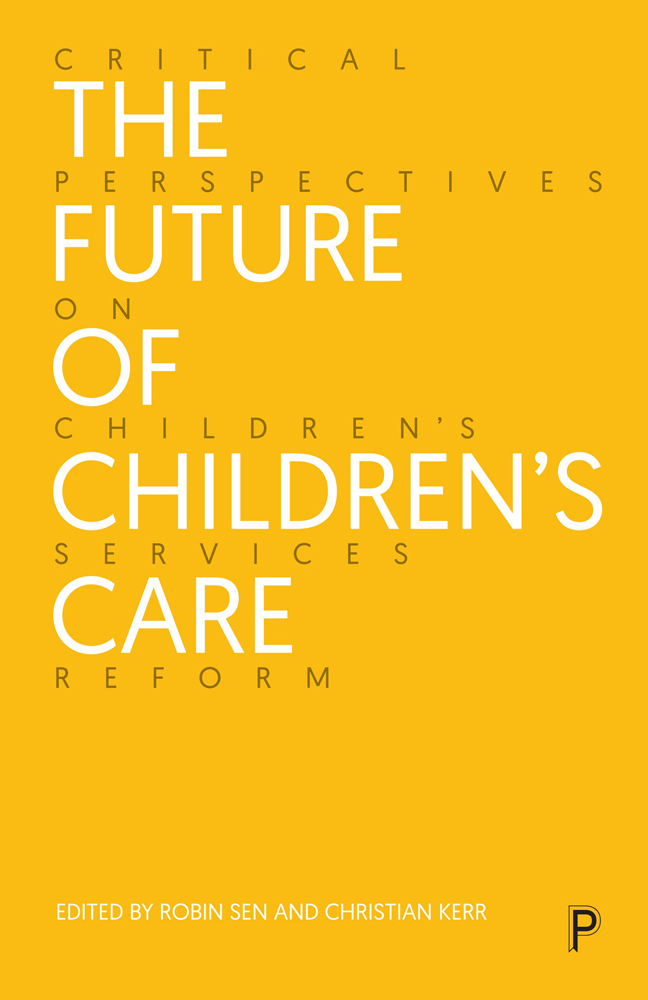Book contents
- Frontmatter
- Dedication
- Contents
- Notes on contributors
- Acknowledgements
- Foreword
- 1 Introduction: critical perspectives on children’s services reform
- 2 Where now? Children's rights in England into the 2020s
- 3 More of memes than schemes: networked propagation in children's social care
- 4 Reclaiming social work, the social work complex and issues of bias in children's services
- 5 Humane social work practice: a more parent friendly system? Hopes and challenges in the 2020s
- 6 Exploring and re-imagining children's services in England through a decolonial frame
- 7 Kinship care for England and Wales in the 2020s: assumptions, challenges and opportunities
- 8 If adoption is the answer, what was the question?
- 9 Caring for children and young people in state care in the 2020s
- 10 Protecting children: a social model for the 2020s
- 11 Conclusion: children's services reform looking back and forwards
- Index
2 - Where now? Children's rights in England into the 2020s
Published online by Cambridge University Press: 23 January 2024
- Frontmatter
- Dedication
- Contents
- Notes on contributors
- Acknowledgements
- Foreword
- 1 Introduction: critical perspectives on children’s services reform
- 2 Where now? Children's rights in England into the 2020s
- 3 More of memes than schemes: networked propagation in children's social care
- 4 Reclaiming social work, the social work complex and issues of bias in children's services
- 5 Humane social work practice: a more parent friendly system? Hopes and challenges in the 2020s
- 6 Exploring and re-imagining children's services in England through a decolonial frame
- 7 Kinship care for England and Wales in the 2020s: assumptions, challenges and opportunities
- 8 If adoption is the answer, what was the question?
- 9 Caring for children and young people in state care in the 2020s
- 10 Protecting children: a social model for the 2020s
- 11 Conclusion: children's services reform looking back and forwards
- Index
Summary
Introduction
The United Nations Convention on the Rights of the Child (UNCRC), which the UK ratified in 1991, puts children and their interests and perspectives centre stage. It makes them a political priority:
The essential idea about the rights of the child is that society has an obligation to satisfy the fundamental needs of children. It is on this very point the UN Convention on the Rights of the Child is so important. One of its main messages is that children's issues are political and should be put high on the political agenda.
(Hammarberg, 1990, p 4)Ratifying states parties are meant to uphold all of the UNCRC's provisions and obligations, unless they have registered reservations with the UN (the UK's final reservations were lifted in 2008). Article 4 requires that maximum available resources are ploughed into fulfilling the economic, social and cultural rights of children which, for a rich developed nation like the UK, would mean an end to child poverty, and certainly the end of children being admitted to hospital due primarily to malnutrition (42 school-aged children in 2020/2021 – NHS Digital, 2021) or entering the care system principally because of their family's low income (at least 50 children each year – see DfE, 2021a).
Article 20 grants ‘special protection and assistance’ to children temporarily or permanently separated from their parents. Article 39 provides that children who have endured abuse or other rights violations have the right to recover in environments which nurture their health, self-respect and dignity. The treaty's general principles – Articles 2, 3, 6 and 12 – entitle children respectively: to enjoy all of their UNCRC rights without discrimination; to have their best interests treated as a primary consideration in all matters affecting them (at individual and group level); to maximum survival and development; and to be able to express their views freely in all matters concerning them, and to then have these views given due weight in accordance with their age and maturity.
Fundamentally, the UNCRC lifts the status of children, and implores adults to have deeper, more meaningful and respectful relationships with children, resting upon the understanding that children have their own agency and integrity and that they are neither the property of their parents nor the state (Willow, 2021).
- Type
- Chapter
- Information
- The Future of Children's CareCritical Perspectives on Children's Services Reform, pp. 14 - 37Publisher: Bristol University PressPrint publication year: 2023

